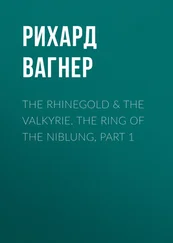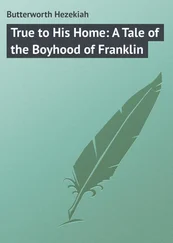She started up.
“What do you want of me, you poor dwarf? Do not mock me. I have had sorrow, and cannot endure jokes.”
“But, mother, what has happened?”
He rushed towards her to embrace her, but she leaped into the air.
The market-women came to her and drove him away.
He went to his father’s cobbler’s shop. His father was there, but he looked like an old man.
“Good gracious! what is that?” said he wildly, as Jamie appeared.
“How are you getting on, master?” asked Jamie.
“Poorly enough. I’m getting old, and have no one to help me.”
“Have you no son?”
“I had one, years ago.”
“Where is he now?”
“Heaven only knows. He was kidnapped one market-day, seven years ago.”
“Seven years ago!”
Jamie turned away. The people on the street stared at him, and the ill-bred children followed him. He chanced to pass a barber’s shop, where was a looking-glass in the window. He stopped and saw himself.
The sight filled him with terror. He was a dwarf, with a nose like that of the strange old woman .
What should he do?
He remembered that the old woman had said that the eating of the magic soup that contained the magic herb would make him a magic cook.
He went to the palace of the duke and inquired for the major domo. He was kindly received, as dwarfs are in such places, and he asked to be employed in the kitchen, and allowed to show his skill in preparing some of the rare dishes for the table.
No one in the ducal palace was able to produce such food as he. He was made chief cook in a little time, and enjoyed the duke’s favor for two years. He grew fat, was honored at the great feasts, and became the wonder of the town.
Now happened the strangest thing of his strange life.
(Ye that have eyes, prepare to open them now.)
One morning he went to the goose market to buy some nice fat geese, such as he knew the duke would relish. He purchased a cage of three geese, but he noticed that one of the geese did not quack and gabble like the others.
“The poor thing must be sick,” he said; “I will make haste to kill her.”
To his great astonishment, the goose made answer: —
“Stop my breath,
And I will cause your early death.”
Then he knew that the goose was some enchanted being, and he resolved to spare her life.
“You have not always had feathers on you, as now?” said the dwarf.
“No; I am Mimi, daughter of Waterbrook the Great.”
“Prithee be calm; I will be your friend; I know how to pity you. I was once a squirrel myself.”
Now the duke made a great feast, and invited the prince. The prince was highly pleased with the ducal dishes, and praised the cook.
“But there is one dish that you have not provided,” said the prince.
“What is that?” asked the duke.
“ Pâté Suzerain. ”
The duke ordered the dwarf to make the rare dish for the next banquet.
The dwarf obeyed.
When the prince had tasted, he pushed it aside, and said, —
“There is one thing lacking, – one peculiar herb. It is not like that which is provided for my own table.”
The duke, in a towering passion, sent for the dwarf.
“If you do not prepare this dish rightly for the next banquet,” he said, “you shall lose your head.”
Now the dwarf was in great distress, and he went to consult with the goose.
“I know what is wanting,” said the goose; “it is an herb called Sneeze with Delight. I will help you find it.”
The dwarf took the goose under his arm, and asked of the guard, who had been placed over him until he should prepare the dish, permission to go into the garden.
They were allowed to go. They searched in vain for a long time; but at last the goose spied the magic leaf across the lake, and swam across, and returned with it in her bill.
“’Tis the magic herb the old woman used in the soup,” said the dwarf. “Thank the Fates! we may now be delivered from our enchantment.”
He took a long, deep sniff of the herb. He then sneezed with delight, and lo! he began to grow, and his nose began to shrink, and he was transformed to the handsomest young man in all the land.
He took the goose under his arm, and walked out of the palace yard. He carried her to a great magician, who delivered her from her enchantment, and she sneezed three sneezes, and became the handsomest lady in all the kingdom.
Now, Mimi’s father was very rich, and he loaded Jamie with presents, which were worth a great fortune.
Then handsome Jamie married the lovely Mimi; and he brought his old father and mother to live with them in a palace, and they were all exceedingly happy.
“What is the moral of such a tale as that?” asked one of the Club.
“If you have any crookedness, to find the magic herb,” said Charlie.
Charlie Leland, the President, closed the exercises with some translations of his own, which he called “Stories in Verse.” We give two of them here; each relates an incident of Eberhard, the good count, whom German poets have often remembered in song.
THE RICHEST PRINCE
In a stately hall in the city of Worms,
A festive table was laid;
The lamps a softened radiance shed,
And sweet the music played.
Then the Saxon prince, and Bavaria’s lord,
And the Palsgrave of the Rhine,
And Würtemberg’s monarch, Eberhard,
Came into that hall to dine.
Said the Saxon prince, with pride elate,
“My lords, I have wealth untold:
There are gems in my mountain gorges great;
In my valleys are mines of gold.”
“Thou hast boasted well,” said Bavaria’s lord,
“But mine is a nobler land:
I have famous cities, and castled towns,
And convents old and grand.”
“And better still is my own fair land,”
Said the Palsgrave of the Rhine:
“There are sunny vineyards upon the hills;
In the valleys are presses of wine.”
Then bearded Eberhard gently said,
“My lords, I have neither gold,
Nor famous cities, nor castled towns,
Nor convents grand and old.
“I have no vineyards upon the hills,
In the valleys no presses of wine;
But God has given a treasure to me
As noble as any of thine.
“I wind my horn on the rocky steep,
In the heart of the greenwood free,
And I safely lay me down and sleep
On any subject’s knee.”
Oh, then the princes were touched at heart,
And they said, in that stately hall,
“Thou art richer than we, Count Eberhard;
Thy treasure is greater than all.”
EQUALITY
The banners waved, the bugles rung,
The fight was hot and hard;
Beneath the walls of Doffingen,
Fast fell the ranks of Suabian men
Led on by Eberhard.
Count Ulric was a valiant youth,
The son of Eberhard;
The banners waved, the bugles rung,
His spearmen on the foe he flung,
And pressed them sore and hard.
“Ulric is slain!” the nobles cried, —
The bugles ceased to blow;
But soon the monarch’s order ran:
“My son is as another man,
Press boldly on the foe!”
And fiercer now the fight began,
And harder fell each blow;
But still the monarch’s order ran:
“My son is as another man,
Press, press upon the foe!”
Oh, many fell at Doffingen
Before the day was done;
But victory blessed the Suabian men,
And happy bugles played again,
At setting of the sun.
Читать дальше












